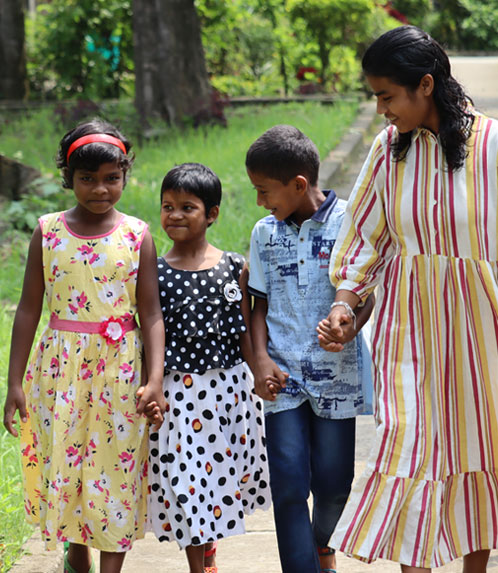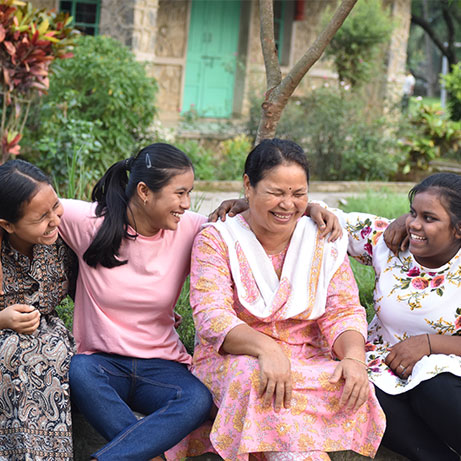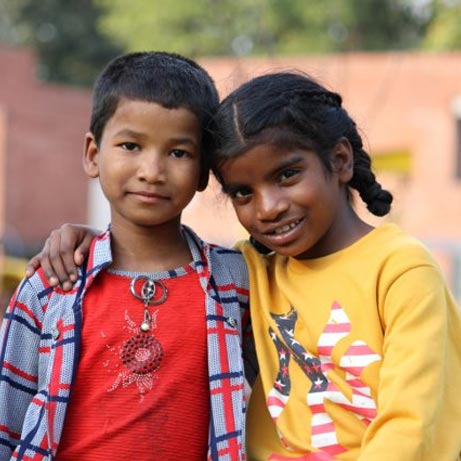
The first SOS Children’s Village was founded by Hermann Gmeiner, an Austrian philanthropist, in 1949 in Imst, Austria. Since then, the organisation has expanded worldwide with active operations in over 130 countries and territories through 500+ SOS Children’s Villages, 700+ Youth Programmes and 500+ Family Strengthening Community Projects. We constantly strive to work for the welfare of children in need of care and protection.
SOS India has empowered more than 65000 children and positively impacted over 83000 lives through programmes and interventions spanning 22 States and Union Territories.
With the SOS Children’s Village concept, our organisation has pioneered a family approach to the long-term care of parentless and abandoned children in India.
What we want for our children
Family is the heart of society. Each child is protected and enjoys a sense of belonging within a family, where children learn values, share responsibilities and form life-long relationships. A family environment gives them a solid foundation to build their lives.
Each child’s voice is heard and taken seriously. Children participate in decisions that affect their lives and are guided to lead in their development. The child grows with respect and dignity as a cherished member of his or her family and society.

Children are protected from abuse, neglect and exploitation and are kept safe during natural disasters and war. Children have shelter, food, health care and education. These are the basic requirements for the sound development of all children.
Through love and acceptance, emotional wounds are healed, and confidence is built. Children learn to trust and believe in themselves and others. With this self-assurance, each child can recognise and fulfil his or her potential.
We work for abandoned children or whose families cannot care for them. We give these children the opportunity to build lasting relationships within a family. Our family approach in the SOS Children's Village is based on four principles: Each child needs a mother, and grows up most naturally with brothers and sisters, in their own house, within a supportive village environment.
We help children to recognise and express their individual abilities, interests and talents. We ensure that children receive the education and skills training they need to be successful and contributing members of society.
We share in community life and respond to the social development needs of society's most vulnerable children and young people.
We establish facilities and programmes that aim to strengthen families and prevent the abandonment of children. We join hands with community members to provide education and health care, and respond to emergencies.
These are the core beliefs and attitudes on which our organisation has been built, and they are the cornerstones of our success. These enduring values guide our actions, decisions and relationships as we work towards fulfilling our mission.
We have challenged traditional methods of abandoned children’s care and continue to pioneer innovative childcare approaches. We help children who have no one else to turn to. With a sensitive yet deep rooted approach we are determined to empower for children around the world.
We are dedicated to helping generations of children have a better life. We do this by nurturing lasting relationships with our donors, our co-workers and the communities in which we are rooted. We believe that by making a long-term commitment, we have a meaningful and sustainable impact.

We believe in each other's abilities and potential. We support and respect one another, building an environment where we can confidently approach our responsibilities. In an atmosphere of trust, we are inspired to share our experiences and learn from each other.
Since 1949 we have built a foundation of trust with donors, governments, and other partners who support us in our mission. Our greatest responsibility is guaranteeing the well-being of children by ensuring high standards of care. In doing this we are committed to using all funds and resources wisely, with respect and accountability